
Image: Black Lives Matter demonstration in Los Angeles, USA. Credit: Louis Carr Photography on Flickr
Last summer, protests took place all around the world and throughout London in response to the killing of George Floyd, a Black man, by a white police officer in the United States. In London’s Hyde Park – just a stone’s throw from our Chelsea labs here at The Institute of Cancer Research, London – tens of thousands of people came together in a series of anti-racism demonstrations to call for justice.
“When I first heard about the events that caused Floyd’s death, I felt many things,” said Wil Koree, who works in the ICR’s Digital Services team and is a member of its BAME Men’s group. “I was angry towards the police, towards certain political figures who refused to denounce the people that allowed it to happen, and towards some media outlets that automatically assumed Floyd was in some way responsible for what happened to him.
“I felt dejected that the younger generation have to grow up in a world where there are more chances of them being stopped, searched and detained by authorities because of the colour of their skin.”
In response to the global reaction to Floyd’s death, the ICR’s Black, Asian and minority ethnic (BAME) forum issued a statement on social media standing in solidarity with the Black community and the Black Lives Matter movement.
The forum, now known as Race Ethnicity and Cultural Heritage (REACH), wrote: “All matters of oppression in society are equally important, but shining a light on this issue is pertinent when millions of people across the world are mourning the death of yet another Black man, George Floyd.
“This affects all humanity, and it’s our responsibility to fight against racial injustice.”
In the weeks following, members of the REACH forum, the ICR’s Chief Executive Professor Paul Workman, and Chief Information Officer Adrian Cottrell came together to have a series of discussions about race. As both a research and higher education institution, the ICR’s purpose for these conversations was to address the racial equality and systemic racism in science and the higher education system.
Six commitments to tackling these issues within the ICR were developed, which are:
- Increasing BAME representation in senior roles. We know that the representation of black staff in professorship roles is a particular issue for the higher education sector.
- Appointing champions for ethnic diversity across the ICR’s Executive board, Faculty and Academic Dean's team.
- Running a campaign of awareness to open up conversations around race.
- Embracing participation in equality networks and activities.
- Ensuring fair and equitable staff and student recruitment, including anonymisation of recruitment procedures where possible.
- Encouraging more BAME people to enter science through public engagement and outreach activities.
Starting a conversation
Naa-Anyima Boateng is a Higher Scientific Officer at the ICR and REACH Forum co-chair. She recalls the energy and the long conversations during this period. At the time, she wondered whether the moment would last – but one year on, she says it’s more needed than ever before.
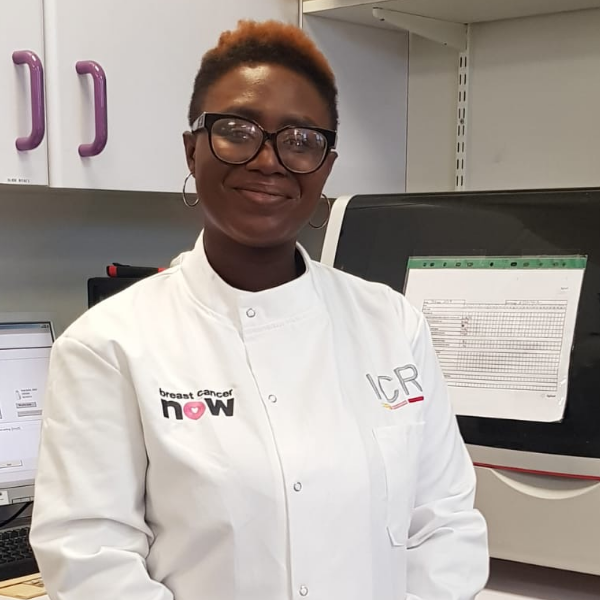
Image: Naa-Aniyma Boateng, Higher Scientific Officer at the ICR
She said: “This year has been a real reckoning and I believe we have begun a journey for real change. George Floyd’s death reignited many of the ongoing calls to address systemic racism, but this year has shown how the issues still persist, from the rise in anti-Asian hate crimes to the disproportionate toll of Covid on some racial groups. These racial inequalities are manifested in our scientific communities and wider society.
I’m very proud of the progress we’ve made, but there is still much work ahead and we need to keep this momentum going.”
In September 2020, the ICR launched the Race Equality: Beyond the Statements action plan, which incorporates its six commitments to tackling racial inequality to promote a culture of inclusivity.
The Beyond the Statements project group – chaired by Equality, Diversity and Inclusions Manager, Dr Vanessa McKean – brings together a range of staff and students at the ICR to progress the actions and activities needed to address racial inequalities in research and professional services at the organisation. Several workshops for senior leadership have also taken place, with more in the pipeline, to formulate action plans specifically focused on race.
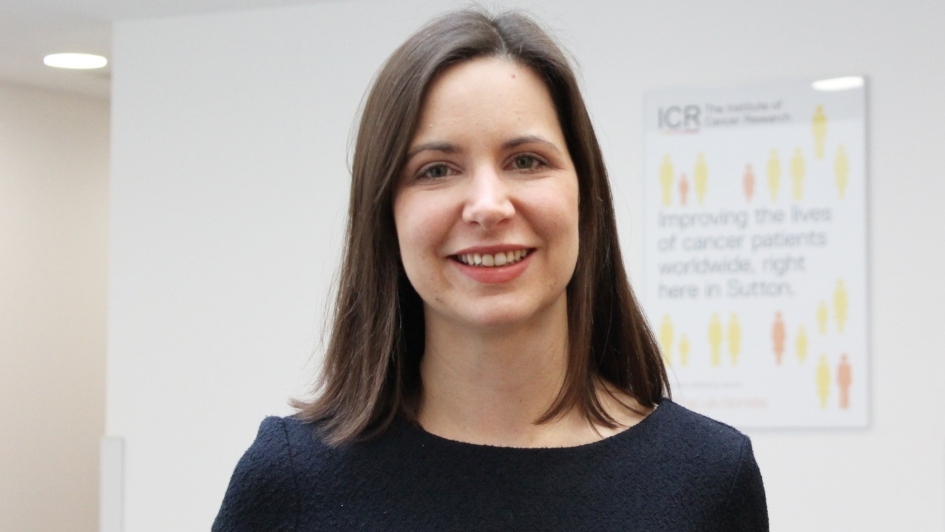
Image: Dr Vanesa McKean, Equality, Diversity and Inclusions Manager at the ICR
Dr McKean manages the project’s implementation and developed the action plan. She said: “Working on Beyond the Statements over the past year has been a brilliant opportunity to bring together staff and students to work on all aspects of systemic racial disadvantage – from how we work with schools and young people, to the way we recruit our most senior leaders, and create a culture where we can all thrive.
I’m proud of the progress we’ve made in a year, and of the support for our work from all areas of the ICR. We still have a way to go to increase the proportion of Black, Asian and minority ethnic staff in scientific and Professional Services roles, and we will continue to work on these issues.”
A space to connect
One of the first steps for Beyond the Statements was taking a hard look at the ICR as an organisation to ensure the right priorities were being addressed, and to gain insight on the scale of the issues.
The project group commissioned various focus groups to capture and listen to the experiences of Black, Asian and minority ethnic staff at the ICR, informing the action plan through data and personal experiences.
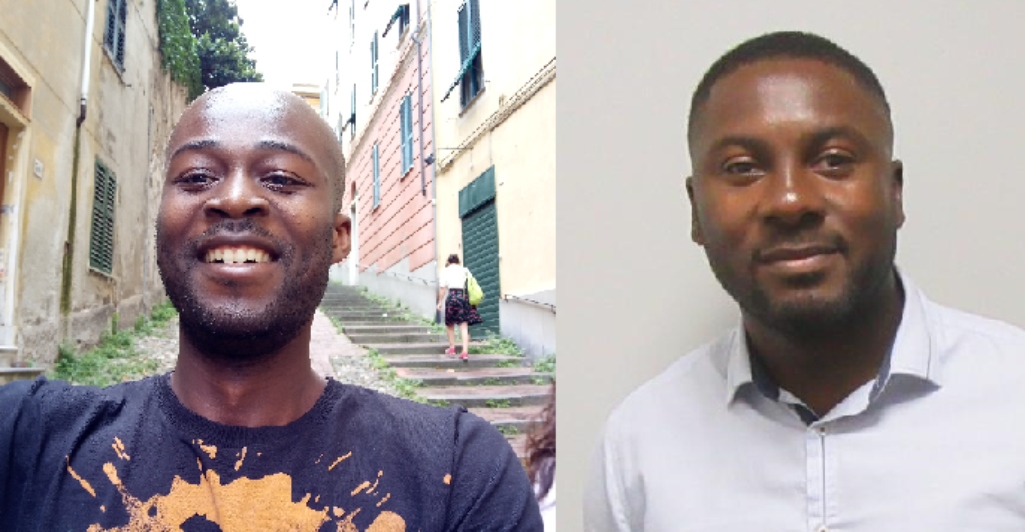
Image: BAME Men's group members Kofi Manfo (left) and Wil Koree (right)
In the midst of the focus groups, a gap emerged in the voices of BAME men. The BAME Men’s group was set up by Solon Attoh, a Continuous Improvement Co-ordinator at the ICR, and became a virtual platform for BAME men across the organisation to meet and discuss their experiences.
Kofi Manfo, a member of the group who works in Digital Services, said: “The forum is a safe space to share our stories and support each other on the issues we face, such as not being considered for or offered promotions on the same level as other colleagues.
“There’s a culture of men feeling like they shouldn’t or can’t open up, so what’s really important is participation – we as BAME men should be proactive in voicing our concerns before we can reach solutions, and this will in turn help to pave the way for the improvements we want to see at the ICR.”
“Getting more representation and perspectives from people of all cultures and walks of life is what we really want to push for in our Men’s Group meetings,” said Koree. “It’s good that conversations focused on increasing diversity are starting to happen at the ICR, and it’ll be even better once these actions manifest into tangible change.”
Championing diversity
One of the key actions for Beyond the Statements is the assignment of champions to address racial inequality, starting from the highest levels of the organisation. The ICR appointed three champions: Adrian Cottrell, who is the Executive Lead, and research team leaders Dr Yinyin Yuan and Dr Anguraj Sadanandam. Together, they ensure that the voices and interests of underrepresented groups across the organisation are being heard and used to shape decision-making in influential and senior committees.
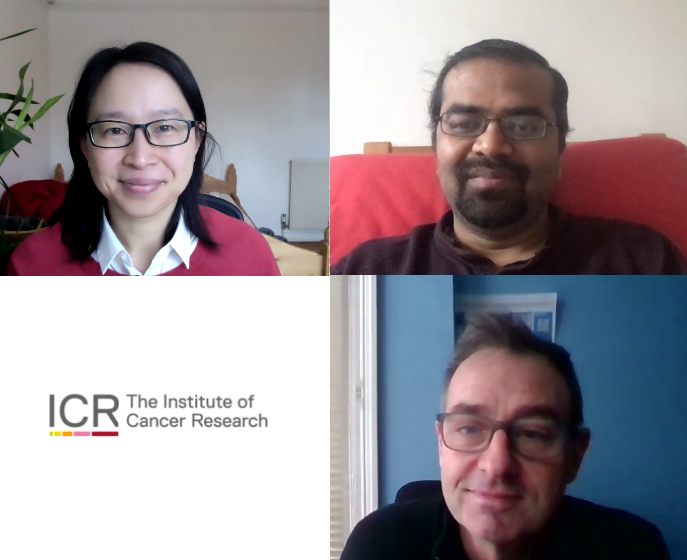
Image: Race Equality Champions (clockwise from top left): Dr Yinyin Yuan, Dr Anguraj Sadanandam and Adrian Cottrell.
Dr Sadanandam, Team Leader in Systems and Precisions Medicine, is Race Equality Faculty Champion – a role that involves working on creating a more diverse Faculty by liaising with and learning from different committees, teams and individuals.
Dr Sadanandam said: “Being a Race Equality Champion is a great opportunity to improve prospects for those who are currently underrepresented at ICR, and increase awareness of the systemic issues they face.
“It’s encouraging that we have made progress in providing more opportunities for BAME colleagues to discuss their experiences and raise issues, which is a big step forward.”
Supporting and inspiring the next generation
Reaching those beyond the ICR is also one of the organisation’s commitments to addressing racial equality on a wider scale. School students from minority ethnic backgrounds are at the heart of the ICR’s new public engagement strategy, which aims to encourage much greater diversity in science through various outreach activities.
Because BAME students, and especially certain ethnic groups such as Black students are less likely to access and progress into science careers, the strategy aims to help address this shortfall long before recruitment or employment.
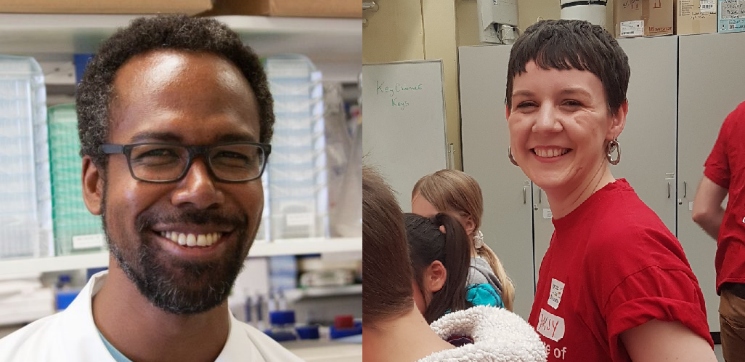
Image: Dr Michael Ranes (left) and Daisy Henesy (right)
Daisy Henesy, Public Engagement Officer at the ICR, said: “It’s so important to work with the REACH forum in order to develop activities that will have a real impact on Black, Asian and minority ethnic young people, and ensure there’s diversity in the next generation of cancer researchers. We know that science careers are still affected by disproportionate representation, and we need to do more to ensure everyone has an equal opportunity to enter into science.”
Last month, the ICR held an event at a school that featured a visit from Dr Michael Ranes, a Postdoctoral Training Fellow on the Structural Biology of Cell Signalling Team and Deputy Co-Chair of the REACH Forum.
Dr Ranes, who is also part of the Beyond the Statements project group, said: “Role models are so important in science. When I began my career I didn’t see other Black scientists.”
While it may take time to change the representation in science, Dr Ranes says it’s important to emphasise the necessity of diversity for science.
“No matter what you look like, we can see the strengths that you bring into science. It’s all about having this mix of different backgrounds, different ways of approaching a problem and that difference is what you want – you don't want everyone to be in the same mindset. In order to advance science, we need brilliant scientists of every gender and race.”
Going beyond
The ICR will continue to push for change and work towards a more diverse and inclusive future for staff and students at the organisation, as well as more broadly in science and cancer research.
A few of the ICR’s upcoming events and initiatives that have been brought about by Beyond the Statements include a webinar on tackling microaggressions, and changes to student recruitment processes to encourage and support applications from ethnic minorities. The organisation will soon launch its Race Equality Career Accelerator programme to help Black, Asian and other ethnic minority staff to develop their careers.
Ultimately, in order to say we have truly gone beyond the statements, it is vital that the ICR doesn’t lose momentum in the campaign against racial injustice.